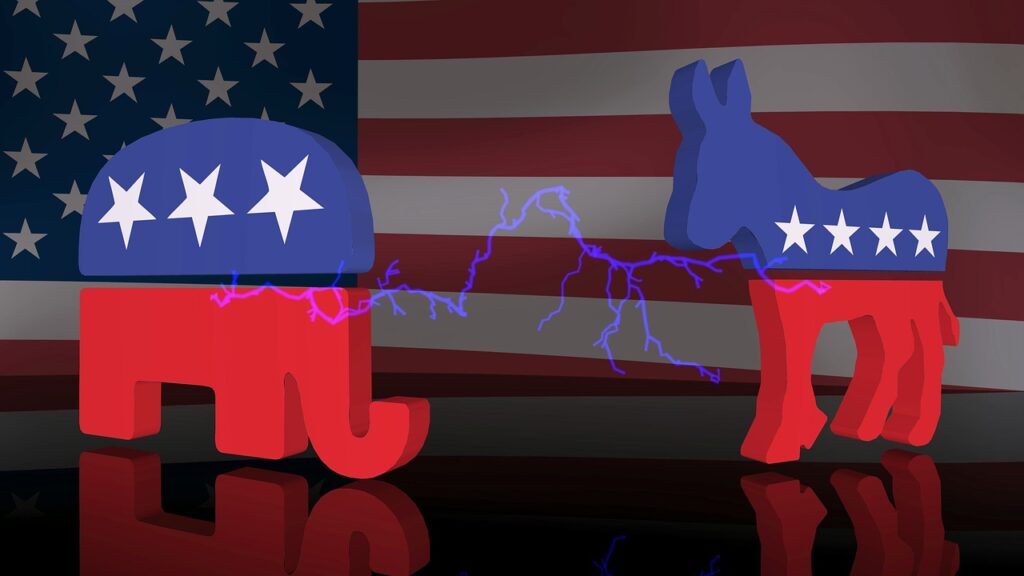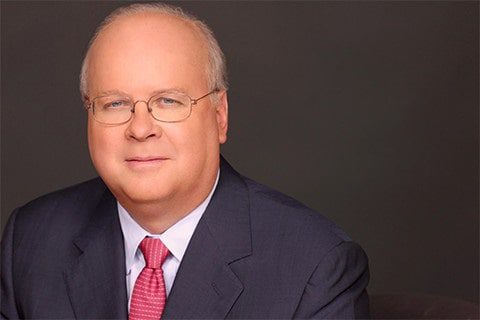
Opinion
By Karl Rove
A presidential campaign never stops, but there are lulls. We’re entering one: the period between the Donald Trump and Hunter Biden verdicts and the first debate, two weeks from now. If you need a rest from politics, take advantage because when that debate starts, from then on it’s going to be a breakneck pace.
Gallup’s May 23 survey—its last poll on how the candidates are viewed before Mr. Trump’s conviction—found that 46% of Americans view each candidate favorably. Mr. Trump led Mr. Biden 25% to 20% in highly favorable views, but also in highly unfavorable, 40% to Mr. Biden’s 35%. This likely reflects what we already know: Mr. Trump’s base is more enthusiastic about him than Democrats are about Mr. Biden, whose supporters are motivated more by their dislike of the GOP candidate.
If this persists, the election will become a contest between voters’ lack of passion for Mr. Biden and their hostility toward Mr. Trump. In a race this tight, how each candidate comports himself in critical moments could tip it one way or the other. There are at least six such inflection points to watch in the next three months.
We’ve already reached the first—how each campaign handles the guilty verdicts. Team Trump says Hunter’s trial was “a distraction from the real crimes” of the Biden family, allegedly enriching itself through Hunter’s foreign dealings. Team Biden projects the image of a caring father supporting his wayward son while castigating Mr. Trump for his conviction for falsifying business records over hush money to a porn star. Both camps must be careful about their rhetoric. Being over the top could turn away swing voters.
The second important moment comes later this month. Mr. Trump could use the June 27 debate to put Mr. Biden in a deep hole by pressing the case on inflation, uncontrolled immigration, global instability and cultural concerns. Just as important are Mr. Trump’s temperament and deportment, and they’re problems.
Mr. Biden could steal the night if he goads Mr. Trump into repeating his 2020 first debate performance, when the latter’s shouting, interrupting and incoherence came off as unhinged. Shortsightedly, Team Trump has been lowering expectations for Mr. Biden’s performance, jeering that he’ll be senile on stage. If a lucid Mr. Biden shows up—a real possibility—that could be a blow to Mr. Trump.
Key point No. 3 will be Mr. Trump’s July 11 sentencing. If he’s sent to prison, some of his supporters could be violent. But many legal observers believe prison time is a remote possibility, and because of appeals Mr. Trump likely wouldn’t be incarcerated before the election anyway.
The more enraged Mr. Trump is in public about his sentence, the more undecided voters may conclude he got what was coming to him. On the other hand, showing a steely confidence about winning on appeal could convince undecided voters to give Mr. Trump the benefit of doubt. For Team Biden’s part, the more the campaign trash-talks the Republican, the more the verdict will look like politicized lawfare, a sure turnoff to swing voters.
The GOP convention, which starts July 15, is key moment No. 4. By then, Mr. Trump will have settled on a running mate. A strong choice will reassure voters about Mr. Trump’s judgment. This is also Mr. Trump’s last, best chance to unify the party. The GOP is more fractured than it should be at this point in the campaign.
Inflection point No. 5 comes a month later, on Aug. 19, when the Democratic convention in Chicago begins. There’s widespread concern about Mr. Biden’s mental acuity, given his age and behavior. Many Democrats will be holding their breath during his acceptance speech. There’s also the danger of violence by pro-Hamas demonstrators. At least when protesters disrupted the 1968 Democratic convention, the Chicago mayor backed the police. This time, the mayor is with the demonstrators, refusing to rule out encampments in nearby parks. Hamas advocates used similar camps with great effect in shutting down universities.
Artilce first appeared in the Wall Street Journal

Karl Rove served as Senior Advisor to President George W. Bush from 2000–2007 and Deputy Chief of Staff from 2004–2007. At the White House he oversaw the Offices of Strategic Initiatives, Political Affairs, Public Liaison, and Intergovernmental Affairs and was Deputy Chief of Staff for Policy, coordinating the White House policy-making process.
Mr. Rove has been described by respected author and columnist Michael Barone in U.S. News & World Report as “…unique…no Presidential appointee has ever had such a strong influence on politics and policy, and none is likely to do so again anytime soon.” Washington Post columnist David Broder has called Mr. Rove a master political strategist whose “game has always been long term…and he plays it with an intensity and attention to detail that few can match.” Fred Barnes, executive editor of The Weekly Standard, has called Mr. Rove “the greatest political mind of his generation and probably of any generation. He knows history, understands the moods of the public, and is a visionary on matters of public policy.”
Before Mr. Rove became known as “The Architect” of President Bush’s 2000 and 2004 campaigns, he was president of Karl Rove + Company, an Austin-based public affairs firm that worked for Republican candidates, non-partisan causes, and non-profit groups. His clients included over 75 Republican U.S. Senate, Congressional, and gubernatorial candidates in 24 states, as well as the Moderate Party of Sweden.

